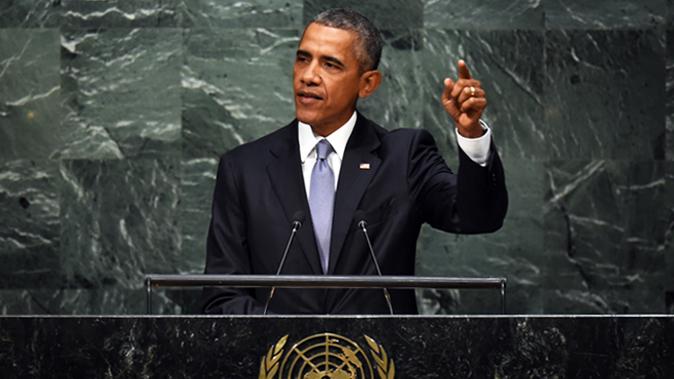UNITED NATIONS—President Barack Obama on Monday announced notable steps to upgrade U.N peacekeeping, with his administration saying more than 50 countries have pledged to contribute more than 40,000 new troops and police to serve in some of the world’s most volatile areas.
But there was no sign the U.S., which pays a quarter of the peacekeeping budget, would put more of its own troops into the field.
The United States chaired a high-level meeting to strengthen and modernize peacekeeping, whose nearly 125,000 personnel increasingly face threats from extremist groups while being severely stretched in personnel and equipment. Deployments to crises can take several months.
And a series of sexual abuse allegations against peacekeepers has brought new concerns about a long-standing problem that Obama called “an affront to human decency.”
Obama’s presence at Monday’s meeting, shortly before his first face-to-face meeting with Russian President Vladimir Putin on the sidelines of an annual U.N. gathering of world leaders, was the latest sign of high-level U.S. interest in the issue.
Putin did not attend the meeting — the only leader of the five permanent members of the U.N. Security Council, which approves peacekeeping missions, not to be there.
For months, officials such as the U.S. military’s top officer and U.S. Ambassador Samantha Power have pressed countries, especially European ones, to contribute more. European countries contributed more than 40 percent of U.N. peacekeepers two decades ago but now provide less than 7 percent.
The U.N. has no standing army, meaning that it’s up to the U.N.’s 193 member states to supply people and equipment.
Monday’s pledges of new troops and police significantly exceed the 10,000 goal that U.S. officials had mentioned. In addition, the dozens of leaders from India, Britain and China and elsewhere said they would contribute the kinds of more sophisticated equipment the U.N.’s 16 peacekeeping missions say they need: Special forces, intelligence units, engineering skills, airlift capacity, field hospitals and even unarmed drones.
Overall, countries pledged more than 40 helicopters, 15 engineering companies and 10 field hospitals, the U.S. ambassador to the U.N., Samantha Power, announced at the end of the meeting.





